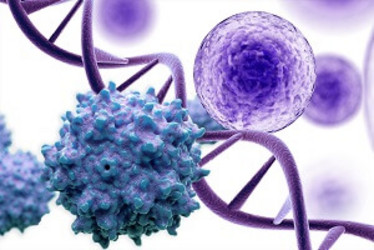Advancing ADC Development
Can prodrug payloads lead to a new dawn for antibody drug conjugates?

Iksuda Therapeutics has licensed a class of tumor-activated prodrug payloads from the University of Goettingen and now hopes to develop a new generation of antibody drug conjugates (ADCs) based on protein-alkylating cytotoxicity.
“The ability to treat all patients safely, irrespective of the relative antigen level for a particular indication, would be a major step forward for the clinical success of ADCs,” says Dave Simpson, Iksuda CEO. “If the concept of broad ranging yet tumor specific activation could be deployed to ADCs, it would be a major step forward that adds another level of tumor specific targeting and improved safety.”
We spoke with Simpson to learn more about the challenges of ADCs – and the company’s hopes for the future.
What are the biggest challenges associated with traditional ADCs?
By far the biggest challenge to date in the treatment of cancers has been the overall “power” – the payload potency – of ADCs. As we move to ever more potent (and effective) payloads, the safety profiles associated with these toxins become increasingly relevant. Historically, ADC development has required a balancing act between sufficient potency to achieve a clinically effective dose and the inherent toxicity of each payload, which has typically resulted in a narrow therapeutic index and prevalence of unwanted side effects – often with severe consequences. Now, companies are working on more refined ADC approaches. For example, we use tumor-selective triggers to reduce the risk of both off-target and on-target (in normal tissues) toxicity. Our CD19 program exemplifies this approach by demonstrating a more than 10-fold improvement in normal to malignant tissue activation – and a resulting clinically important therapeutic index for patients with a range of B-cell lymphomas (data presented by LegoChem Bioscience at World ADC Digital in September 2020).
How did you begin working with Lutz Tietze at the University of Goettingen?
Quite fortuitously! We arranged a meeting at a partnering congress with the Goettingen BD team whilst sourcing antibodies of interest, but we went off track and started to talk more broadly around our payload objectives. A quick structural diagram was drawn on a napkin, and a picture emailed back to the Iksuda science team to decide on our interest… The rest is history.
The latest in-license of the payload, which we now call Iksuda’s ProAlk prodrug, is only the latest stage in our ongoing relationship with Goettingen.
How can the protein-alkylating, tumor-activated prodrug payload series enhance an ADC?
We’ve already proven the concept of tumor-activated payload triggers through our CD19 program. In our work, we’ve demonstrated a significant increase in therapeutic index and, interestingly, a further improvement in ADC efficacy. By moving the bar at both ends, we’re achieving a translatable therapeutic index.
Borrowing the data from these studies, we expect to see a similar broadening in ADC power in our ProAlk series. Using the most potent analogue from any payload series isn’t always the preferred route to success, but with ProAlk we also have the ability to “dial down” the potency, whilst still incorporating the tumor selective triggers. And that should allow us to design an ADC specifically tailored for each indication.
What are your therapeutic targets for such ADCs – and why?
The major challenge and focus for Iksuda is still to effectively treat solid tumors – with the goal of completely curing each patient of cancer. Iksuda’s partnership with LegoChem Biosciences (LCB) which we announced earlier this year initially gave the company access to LCB’s prodrug payload platform which we are now embedding in our approach to solid tumour therapies, focusing currently on clinically validated targets where we can improve clinical differentiation through our payload choices.
However, there also remain challenges and clinical opportunities in the HaemOnc space. Through our expanding relationship with LCB, Iksuda recently in-licensed a potentially differentiated CD19 ADC (now IKS03). In addition to providing Iksuda with another potential clinical opportunity, it also further demonstrates the prodrug payload approach by comparison to other CD19 ADCs.
Leverage Proven Technology to Speed Path to FIH

GPEx® Lightning is a fast, flexible way to shorten the path to production of phase 1 material. During this talk, we share the latest data leveraging GPEx® Lightning to generate highly stable, highly productive cell pools.



















